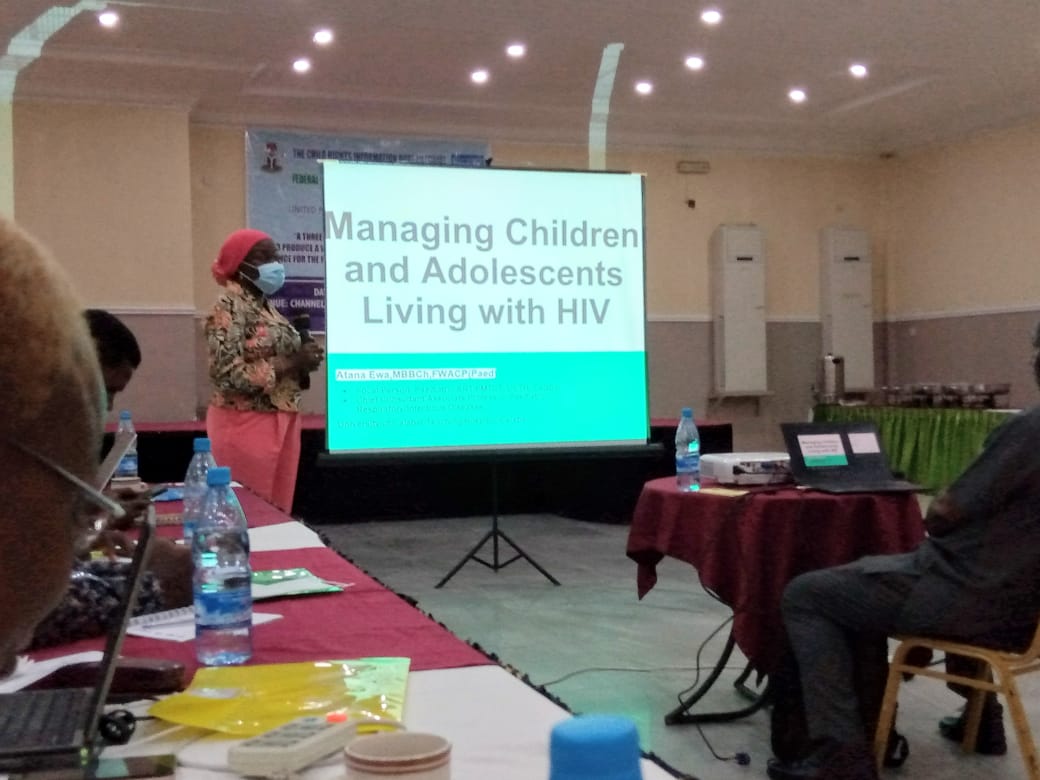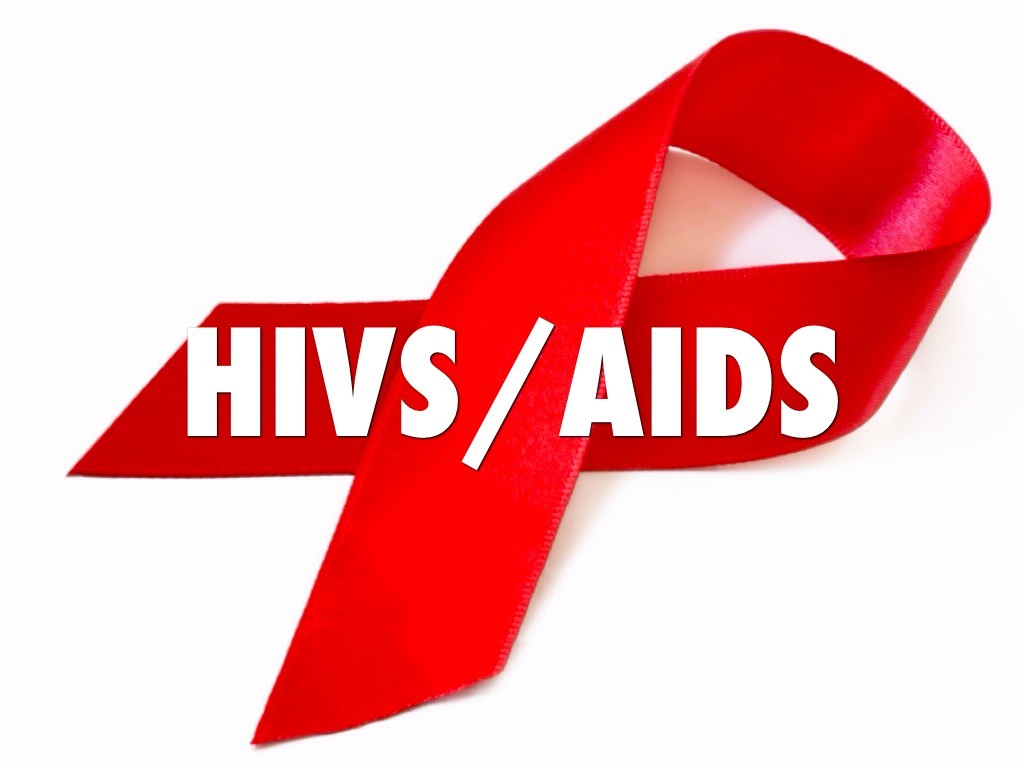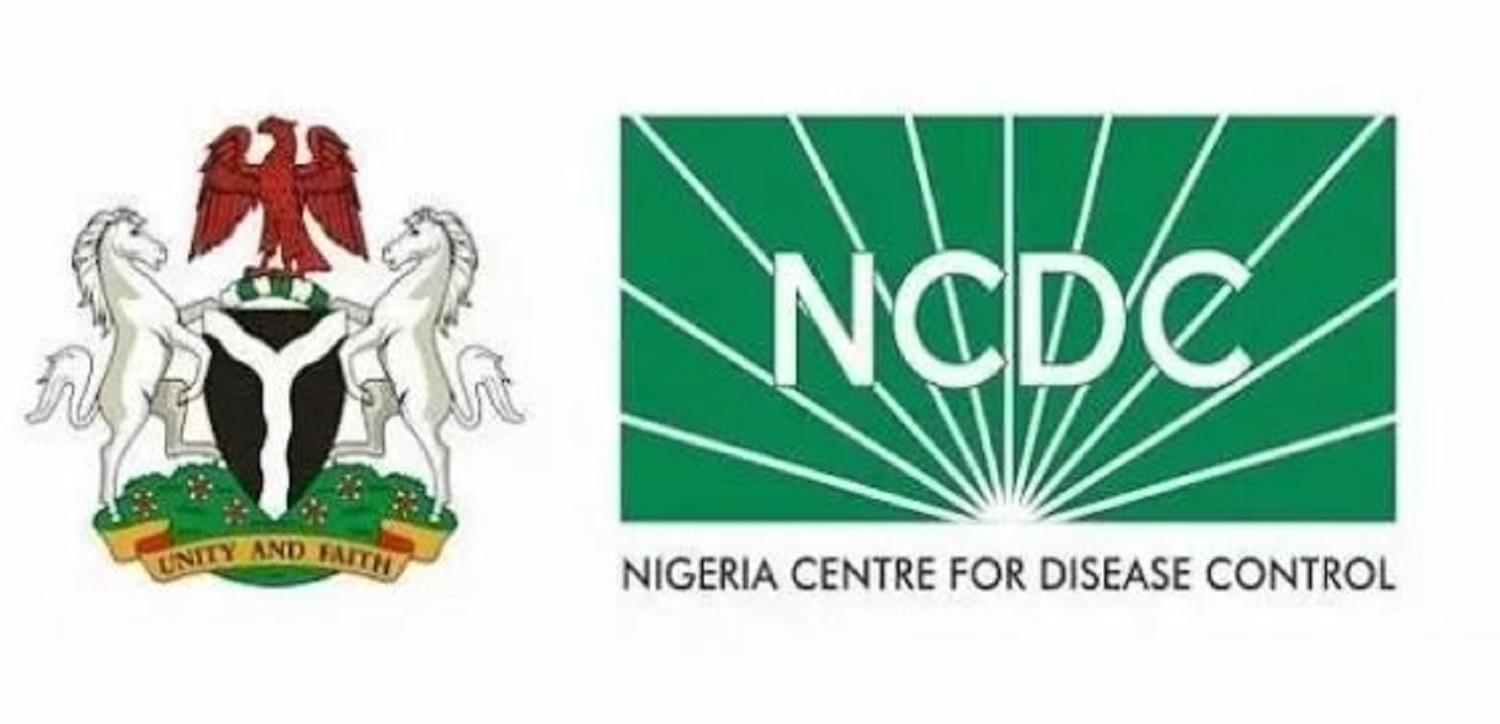Health
HIV/Aids: “Lack of data impeding prevention of mother to child infection in Nigeria” – UNICEF

By Laide Akinboade
The United Nations Children’s Fund, UNICEF, has decried the non availability of good data of prenatal and postnatal women, thereby impeding treatment and prevention of mother to child infections of Hiv/Aids in Nigeria.
According to the most recent data, “over a quarter (26.
9%) of all cases of mother-to-child transmission (MTCT) of HIV in the world happen in Nigeria”.For instance, in 2016, just 32% of pregnant women living with HIV received antiretroviral treatment to prevent mother-to-child transmission and only 34.
7% were tested for HIV as part of their antenatal care; meaning the rate of mother-to-child transmission in the country has consistently remained quite high, compared to other countries.In the last decade, UNICEF has been working with relevant agencies and government at all levels in Nigeria, specifically with a view to reducing the prevalence of mother to child transmission.
Towards this end, Nigeria was selected as one of UNAIDS’ 23 priority countries for PMTCT – being one of the nations with the highest HIV burden yet low levels of treatment coverage during pregnancy. Unfortunately though, of these 23 countries, Nigeria has the second lowest level of ART coverage in pregnant women.
The number of pregnant women visiting health facilities remains low, as does the number of health facilities providing PMTCT services, with only 7,265 health facilities providing PMTCT in 2015. (current datas are not available)
Though the Nigerian government has made a commitment to improve and create more PMTCT facilities in hospitals and general health clinics, it is doubtful that the target of 95% of health facilities providing PMTCT services by the end 2021 in Nigeria is achievable.
Speaking at a UNICEF funded workshop recently, Dr. Gbenga Ijaodola, of the Federal Ministry of Health lamented the fact that Nigeria has not been able to adequately collate data on pregnant women for many reasons. He stated that agencies have resorted to working with estimates, because in most cases, pregnant women no longer attend ante natal clinics.
“So many pregnant women especially those in the rural areas hardly go to the hospital for ANC, they patronize traditional birth attendants, because the health facilities are too far from them or they cannot afford to pay for the services of these facilities so much eSign themselves to TBAs”
“Three out of four pregnant women in Nigeria attend ANC, this means over 40% of pregnant women don’t go for ANC at all. So the question is where do they give birth, then how can the nation have a proper data of pregnant women, prevent HIV transmission of mother to child, when the pregnant women don’t even go for HIV testing?”, he asked.
Dr Atana Ewa, from University of Calabar, Teaching hospital at the media dialogue lamented that HIV is a major cause of infant and childhood mortality and morbidity in Africa. Over 1.9 million Nigerians is estimated to be living with HIV. In 2018 the incidence of HIV was estimated at 8per 10,000 persons.
She stressed that, in order to prevent mother to child transmission, a mother cannot breast feed the child more than 12 months, “A breast feeding mother who is HIV positive must know her viral load and must be taking her anti retroviral drugs.
“And no matter how much she loves breast feeding and the baby, she must stop at 12 months, exclusive breast feeding for 6months and she continues but not beyond 12 months.
“The longer you breastfeed , the more you are increasing the chance of passing the virus. Even though she is on ART, let not do it too long, nobody knows the level of which infection can or can’t occur”, she said.
Even the pregnant women who attend ANC, over 63% of them don’t even have access to the much needed PMTCT.
In order to increase the number of pregnant women coming for ANC and PMTCT, it is imperative for the government to make ANC free and if possible give incentives to every pregnant woman that comes for ANC. When these women attend ANC, there will be proper documentation of these women and necessary tests would be carried out.
Sadly, Nigeria contributes 22,000 new HIV infections in children globally and a mere 28 per cent HIV exposed infants had access to early infant diagnosis in 2020.
For the Nigerian government to address data lapses in the country, there is need for the federal, state and local governments to create ante natal care and delivery services in every ward. It goes without saying that once a well equipped health facility is close enough and available, pregnant women will not have an excuse not to go for their ANC regularly.
In addition, government must look into exorbitant health facilities fees, which has often discouraged most pregnant women in the country from attending ANC, hence the inability to collect and/or gather good data.
Prevention of mother-to-child transmission (PMTCT) programmes offer a range of services for women of reproductive age living with or at risk of HIV to maintain their health and stop their infants from acquiring HIV.
Prevention of Mother To Child Transmission, PMTCT, improves maternal and child health through preventing the spread of HIV infection.
My name is Tessy, am 37 years old, I am a community health worker, I am a mother of two beautiful children . In 2013, while on my Industrial Training, IT, in one of the communities in Cross River State, a needle pricked me and I got infected. Unknown to me, the person I treated was an Human Immunodeficiency Virus, HIV, positive person.
Six months after I finished my IT, and came back to Calabar, I fell seriously sick. My dad rushed me to the hospital, that was where I did a HIV test and it was discovered I was positive. So they refered me to the General Hospital, I felt like my world had crumpled and for two weeks I refused to take my medications. I developed tuberculosis, you know HIV and TB work together. I was treated for TB, started my antiretroviral drugs after three months. I haven’t been seriously sick since then. Once a while, I do take anti malaria drugs.
I am a HIV positive person and my two children and husband are negative. For you not to infect your children you must be committed to your medications and also check your viral load regularly so that your children won’t be infected.
As far as your viral load is suppressed, your husband and children will not be positive. They placed my husband on drugs which they call PrEP (pre-exposure prophylaxis) and my husband is not positive since he has been taking the drugs. My children were also placed on Nevirapine. And I will be able to breast feed them exclusively for 6 months.
Then at 18 weeks old , then you will go and do your Dried Blood Spot (DBS)test, DBS testing for the. baby, which allows for diagnosis of HIV as early as six weeks of age. After the test and the children comes out negative.
One thing I am very happy about , is the fact that my husband who is a military officer and my kids are negative.
Then i am happy that I went to the hospital early and was able to get antiretroviral drugs on time especially when I got pregnant with my babies, there are lot of women that are HIV positive but do not attend antenatal clinic, some are not even captured at all.
“That is why government must take Prevention of Mother To Child Transmission, PMTCT, very seriously, ensuring that all pregnant women attends antenatal care regularly. Regular attendance of antenatal is a sure way to prevent transmission of mother to child and increase in the number of people infected with HIV’.”
According to the Joint United Nations Programme on HIV/AIDS (UNAIDS) 85% of pregnant women living with HIV had access to antiretroviral medicines to prevent transmission of HIV to their child in 2020.
The implementation of effective PMTCT programs would require innovative strategies that leverage improvement of Antenatal care (ANC) uptake as an entry point for PMTCT..
Nigeria need to urgently link all its data sources to National Data Repository, NDR, and incorporate PMTCT data to NDR.
Health
Expert Advocates For Elimination of Mother-to-Child Transmission of HIV Through HIV Self Testing.

From Attah Ede, Makurdi
Eliminating mother-to-child transmission of HIV in Nigeria is an achievable goal, but it requires innovative approaches that can address the unique barriers faced by women in underserved communities.
An expert on health related matters, Dr Godwin Emmanuel stated while interacting with newsmen as part of activities commemorating the just concluded World Aids Day in Makurdi, the Benue State capital.
Dr.
Emmanuel who is the Managing Partner/Impact Officer of MOZUK Future Solutions Limited, stated that the World AIDS Day have come and gone, yet Nigeria government must not fail to examine some of the gaps that must be urgently bridged as a nation.He explained that each year, thousands of children are born with HIV, largely due to inadequate access to testing and treatment during pregnancy, disclosing that the Joint United Nations Programme on HIV/AIDS (UNAIDS) estimates that Nigeria contributes about 22% of global paediatric HIV cases which indicates the urgent need for innovative approaches to curb MTCT.
“This brings me to a recent study in Lagos and Kano which demonstrated how HIV self-testing kits offer a practical, effective, and scalable solution to our MTCT challenges.
“The study interrogates an initiative seeking to integrate HIV Self-Test (HIVST) kits into TBA services as part of a broader strategy to eliminate MTCT.
“The intervention targeted underserved communities where healthcare access is limited, leveraging the trust and accessibility of TBAs to distribute self-testing kits and provide essential counselling”.
According to him, the study, led by Dr. Toriola Adebayo of Lagos State University Teaching Hospital and Dr. Usman Bashir of Aminu Kano Teaching Hospital, articulated the role of local expertise in advancing healthcare solutions tailored to community needs.
“In this intervention, 182 TBA clinics across three local government areas (LGAs) in Lagos and Kano States were equipped with HIVST kits. TBAs received extensive training on the administration of the tests, pre- and post-test counselling, and linkage to care for those who tested positive.
“Among the 1,982 pregnant women enrolled in the study, pre-intervention testing rates were markedly low, with just 60% in Lagos and 38% in Kano having ever been tested for HIV. After the introduction of HIVST, testing uptake surged, with all participants voluntarily using the kits during antenatal visits.
“The results were promising:
HIV Positivity Rate: An overall positivity rate of 0.8% was recorded, with slightly higher rates in Lagos (1.1%) compared to Kano (0.8%).
“First-Time Testers: Remarkably, 80% of those who tested positive were undergoing HIV testing for the first time.
Linkage to Care: All HIV-positive individuals were successfully linked to ART services, demonstrating the effectiveness of the TBA-led model in bridging gaps in healthcare access.
“The success of this initiative exemplifies how HIVST can become a cornerstone of affirmative action against paediatric HIV infections, which was also a critical focus of World AIDS Day observances.
“As evidenced by the success of the Lagos and Kano initiative, when confidentiality, stigma reduction, and leveraging trusted community figures like TBAs are prioritised, HIVST has the potential to transform PMTCT efforts across Nigeria.
“This is even more so with sustained investment, community buy-in, and political will. This can move us closer to a future where no child is born with HIV and every mother has the opportunity to live a healthy, fulfilling life”, Dr. Emmanuel alluded.
He further revealed that HIV self-testing kits offer a simple, private, and effective means of determining one’s HIV status, adding that the kits allow individuals to test themselves using a saliva sample or a small drop of blood, with results available in minutes.
Highlighting the importance, the health, said the convenience and confidentiality of this method are particularly appealing to those who might avoid traditional testing due to stigma or fear of disclosure.
He stated that the fear of being judged or ostracised often prevents pregnant women from seeking HIV testing, stressing that HIVST kits allow individuals to test in the comfort of their homes or a private setting, without fear of disclosure. This is particularly crucial for pregnant women, who may face compounded stigma if diagnosed with HIV.
“Increased Testing Uptake as demonstrated shown the intervention in Lagos and Kano demonstrates that when provided with confidential and convenient testing options, more women are willing to know their HIV status. Early diagnosis is key to initiating ART, which can reduce the risk of MTCT to less than 1%.
Health
NAFDAC Supports Herbal Medicine, says Must go Through Clinical Trials

Prof. Mojisola Adeyeye, the Director-General, National Agency for Food and Drug Administration and Control (NAFDAC), says she supports herbal medicine production in the country.
She said this on a Forum in Abuja.
She, however, explained that for NAFDAC to accommodate herbal medicine as part of its regulated products, such herbal preparation must go through clinical trials.
She disclosed that the major challenge to herbal medicine practitioners is how to secure resources to finance clinical trial for their products, which she said cost a lot of money because it is a major aspect in medicine.
She added that “I believe in natural medicine, I was brought up with it, like the Agbo that we were taking and it was working.
“Herbal medicine or natural medicine work, before I came back home from the United States, I started a research on natural medicine for the cure of sickle cell, my niece who is a sickler got on it and her episodes decreased by 70 to 80 per cent.”
She explained that the agency gives approval for natural medicines once proven it is not toxic, and they have been used and tested before.
“We approve them for two years and then they can renew if they do clinical trial because it is something we are not used to in Nigeria.
“China supports many of these herbal practitioners.”
The director-general also spoke about using fruits and vegetables as medicine to cure some illnesses, adding that some of these fruits contain antioxidants that prevent cancer. (NAN)
Health
NCDC Calms Fears over XEC COVID-19 Variant, Urges Continued Vigilance

The Nigeria Centre for Disease Control and Prevention (NCDC) has allayed public fears over the detection of the SARS-CoV-2 XEC subvariant globally.
The Director-General of the centre, Dr Jide Idris, did this in a public advisory issued on Saturday night in Abuja, made available to newsmen.
Idris reassured Nigerians that the variant, though identified in 29 countries, has not been detected in Nigeria.
He said that the XEC subvariant, a descendant of the Omicron JN.
1 lineage, was currently classified as a Variant Under Monitoring (VUM).According to him, this means that it is being closely observed for potential concerns but does not yet pose significant risk.
“The XEC sub-variant has been reported in Europe, Asia, North America, and Africa, with Botswana being the only African country to record cases so far.
“While the sub-variant exhibits higher transmissibility, there is no evidence of increased disease severity,” he said.
The NCDC boss said that Nigeria had been monitoring the JN.1 variant, classified as a Variant of Interest (VOI), which has been present in the country since January.
He assured Nigerians that the National COVID-19 Technical Working Group was conducting continuous surveillance and data analysis.
Additionally, he said that a dynamic risk assessment was being organised to strengthen the country’s preparedness and response capabilities.
He urged health facilities nationwide to ramp up COVID-19 testing and forward positive samples to accredited laboratories for genomic sequencing.
He encouraged the public to maintain vigilance and adhere to basic health protocols, including handwashing, mask usage in crowded spaces, and ensuring proper ventilation indoors.
He advised vulnerable groups, such as the elderly and those with underlying health conditions, to remain cautious.
“COVID-19 remains a significant risk, particularly for the elderly, individuals undergoing cancer treatment, organ transplant recipients, and those with suppressed immune systems.
“We urge Nigerians to get vaccinated and receive booster doses as recommended,” he said.
The director-general also called on state governments to enhance public health infrastructure, provide resources for improved surveillance and diagnostics, and promote public health education.
He reaffirmed the agency’s commitment to providing Nigerians with accurate and timely information on the evolving COVID-19 situation globally.
He urged citizens to avoid misinformation and rely on verified updates from its platforms.
“For assistance, the public is encouraged to contact the NCDC via its toll-free number 6232 or, WhatsApp: 07087110839, Twitter: @NCDCGov and Facebook: @NCDCgov,” he said.
Report says that the XEC variant of COVID-19 is a recombinant strain, meaning it results from the combination of genetic material from two or more existing variants of the SARS-CoV-2 virus.
Recombinant variants can emerge when different strains infect the same individual and exchange genetic material during replication.
This process may lead to new variants with unique properties, such as increased transmissibility, virulence, or resistance to immunity.
While thousands of mutations have been tracked globally, only a few variants are monitored for public health significance.
Nigeria’s NCDC and global health organizations like the WHO continue genomic surveillance to monitor and respond to emerging variants.(NAN)
























